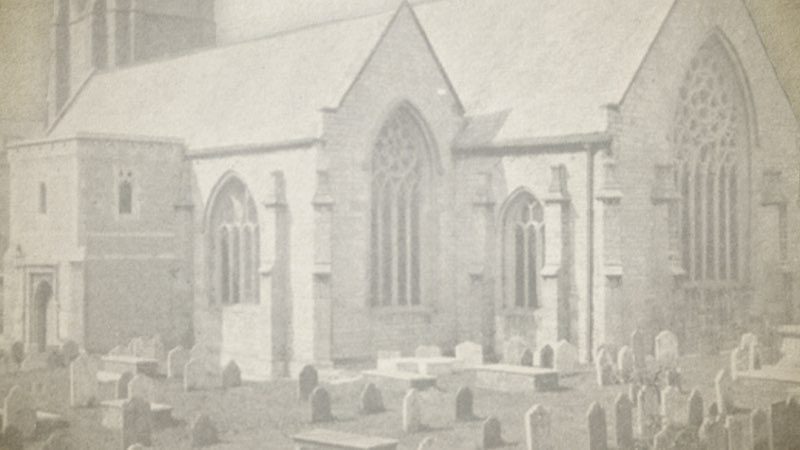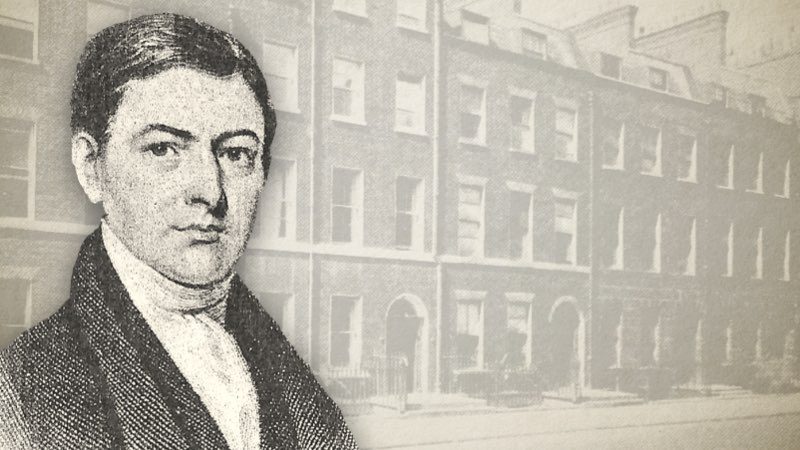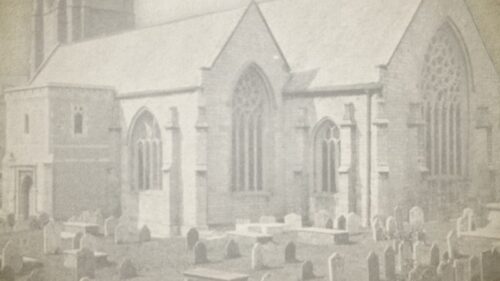Henry Fowler
Henry Fowler (1779-1838) was an Independent sovereign grace preacher and hymn writer. In 1813, he assumed responsibility for a gospel work in Birmingham. He removed to London in 1819, serving as pastor of Gower Street Chapel. The original congregation met in a chapel on Conway Street, and were followers of William Hintington’s ministry. Upon Mr. Fowler’s acceptance of the call to serve as pastor, a new chapel was built on Gower Street. This chapel (now demolished) was the predecessor to the old Gower Street Memorial chapel on Shaftesbury Avenue.
-
The Life And Ministry Of Jonas Eathorn
This man was the paralytic concerning whom Dr. Hawker has given an interesting account in his "Zion's Pilgrim." I wrote an outline of the paralytic’s life from his own mouth, at the request of Dr. Hawker, but it was never printed. I shall devote a few pages for the purpose here, as I judge many of my readers will read the history of my worthy brother, Jonas Eathorn, with much pleasure. Jonas Eathorn was by trade a barber and hairdresser. He attended close to his business, and when he went from home to attend upon gentlemen, he used generally to be seen in a full trot; but such a lover was he of white ale, (a beverage I never saw but at Plymouth,) that he…
-
The Last Days Of Henry Fowler
Dear Mr. Editor, As one of your readers, I have much pleasure in providing you with an account, so far as I have materials reliable, concerning the last days of my beloved father. It consists of three letters, each written under varied circumstances, showing the state of his mind within two months of his decease. These letters I number 1, 2, and 3. No. 1 was written to the late Mr. Charlwood, formerly of Norwich, now gone to his rest. No. 2, to his brother John, still living in Devonshire, and in his 87th year. No. 3, some few particulars of his last days, by his son Ebenezer, who was wrecked in the ship Madagascar, on his return from Australia, in the year 1855, where…
-
The Life And Testimony Of Henry Fowler
I was born in the parish of Yealmpton, Devon, Dec. 11th, 1779. My father was advanced in years when he married my mother. He died 1784, leaving my mother with four children, and pregnant with the fifth. Three out of the five are gone, I believe, to glory. Glory to God for his free grace. After being a widow about three years, my mother was again married; and by an increasing second family I found my situation at home very uncomfortable, so that I often looked forward with some degree of pleasure to the time of my apprenticeship. Before I was 11 years old, I was put on trial with a Mr. E., of Dartmouth, where I continued but a few months. The family were…
-
Gracious Words
The former part of the verse speaks of the Shepherd, which is Christ, the Good Shepherd (John 10:14), and of the sword awaking against Him at the command of Jehovah the Father. Here is shown the rights of Justice: He will by no means clear the guilty. Jesus took on Himself the sins of His elect; He became as a sinner in the view of Justice: He was considered as the law-breaker, and must bear the punishment due to transgressors, as Isaiah 53:5, "He was bruised for our iniquities," &c., &c., to the end of the chapter. Sins, in Scripture, are called debts. God the Father is represented as our Creditor; and we are debtors, and are by Adam's debts (which are transferred to us),…
-
The Sword Of The Spirit
The sword is a weapon of war, to be used offensively and defensively; but it must be a poor religion that requires the power of the sword to support it. Here Popery excels in transgression. What is that religion that men are compelled to embrace by the civil power? Hypocrisy and nothing less. How can that be the free choice of a man, if the sword of power and the fear of punishment urge him to embrace religion? Is not the man so terrified into religion rather a vassal and a slave than a volunteer? Would any man in his senses call that man a volunteer who is dragged away from his home by a band of ruffians on board of a man-of-war? Does he…
-
The Efficacy Of God’s Word
"Is not My Word like as a fire? saith the Lord; and like a hammer that breaketh the rock in pieces?”—Jeremiah 23:2 By a variety of comparisons, the Lord conveys His mind and will unto us. Seeing we are dull of apprehension, He uses words expressive of things with which we are familiar. Fire softens and melts the hardest metals, and is capable of consuming all that is consumable. The Word of the Lord tries sinners' hearts and ways, and all their carnal notions and vain thoughts of God are consumed by the fire of His Word. God's fire is attended with light, and that light discovers the darkness of the sinner's heart, but the darkness comprehends it not: "The entrance of Thy words giveth…




